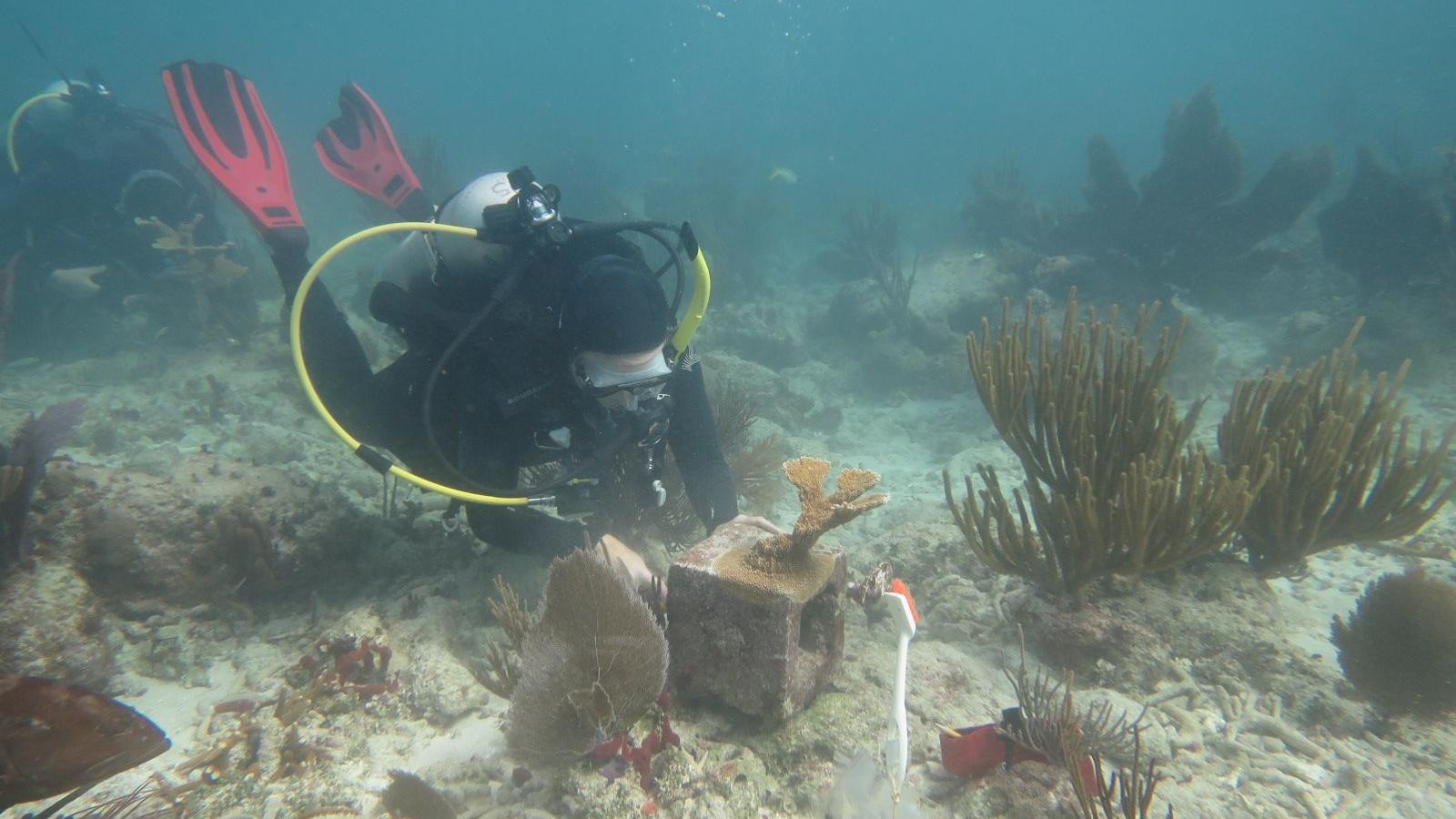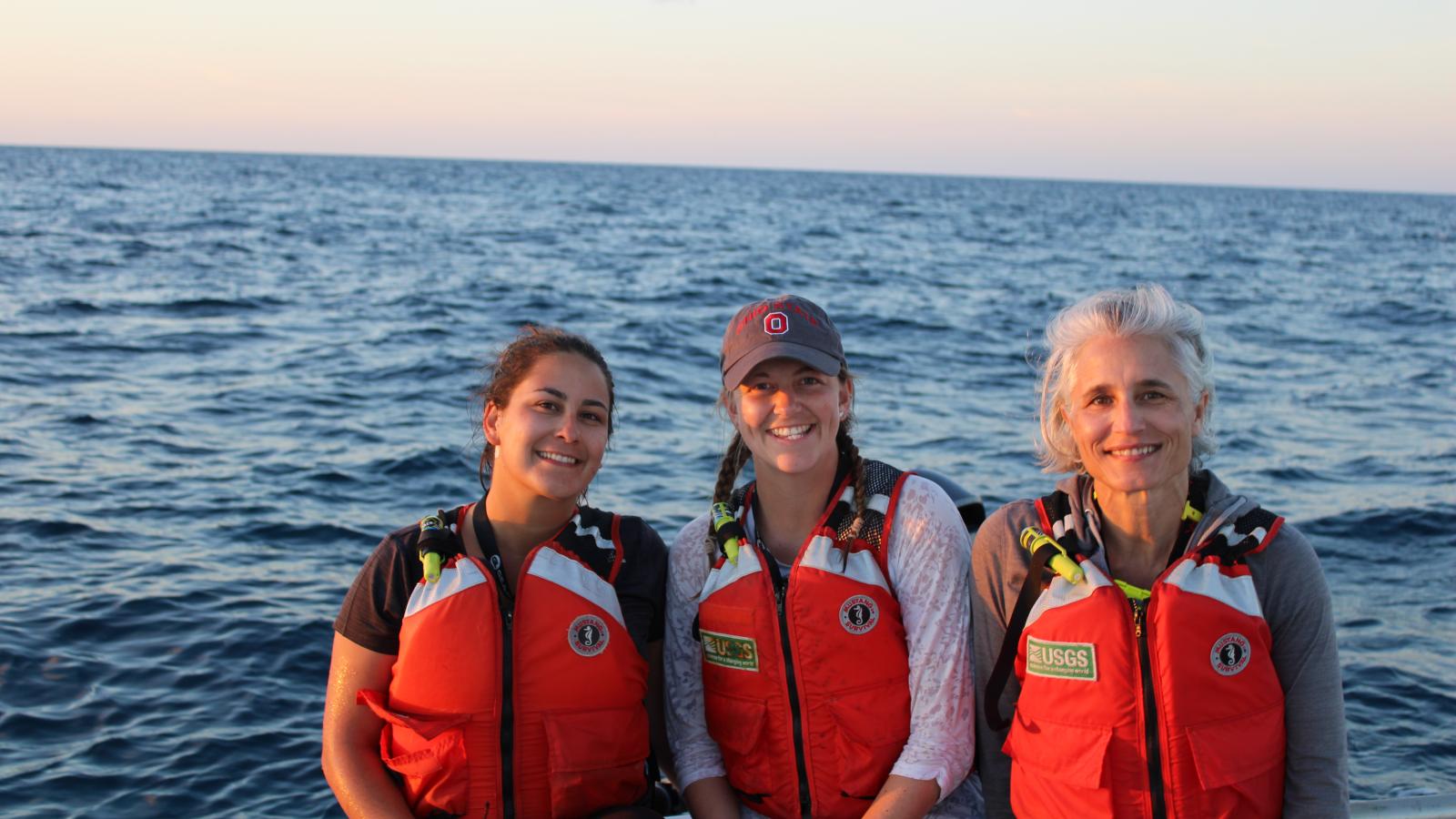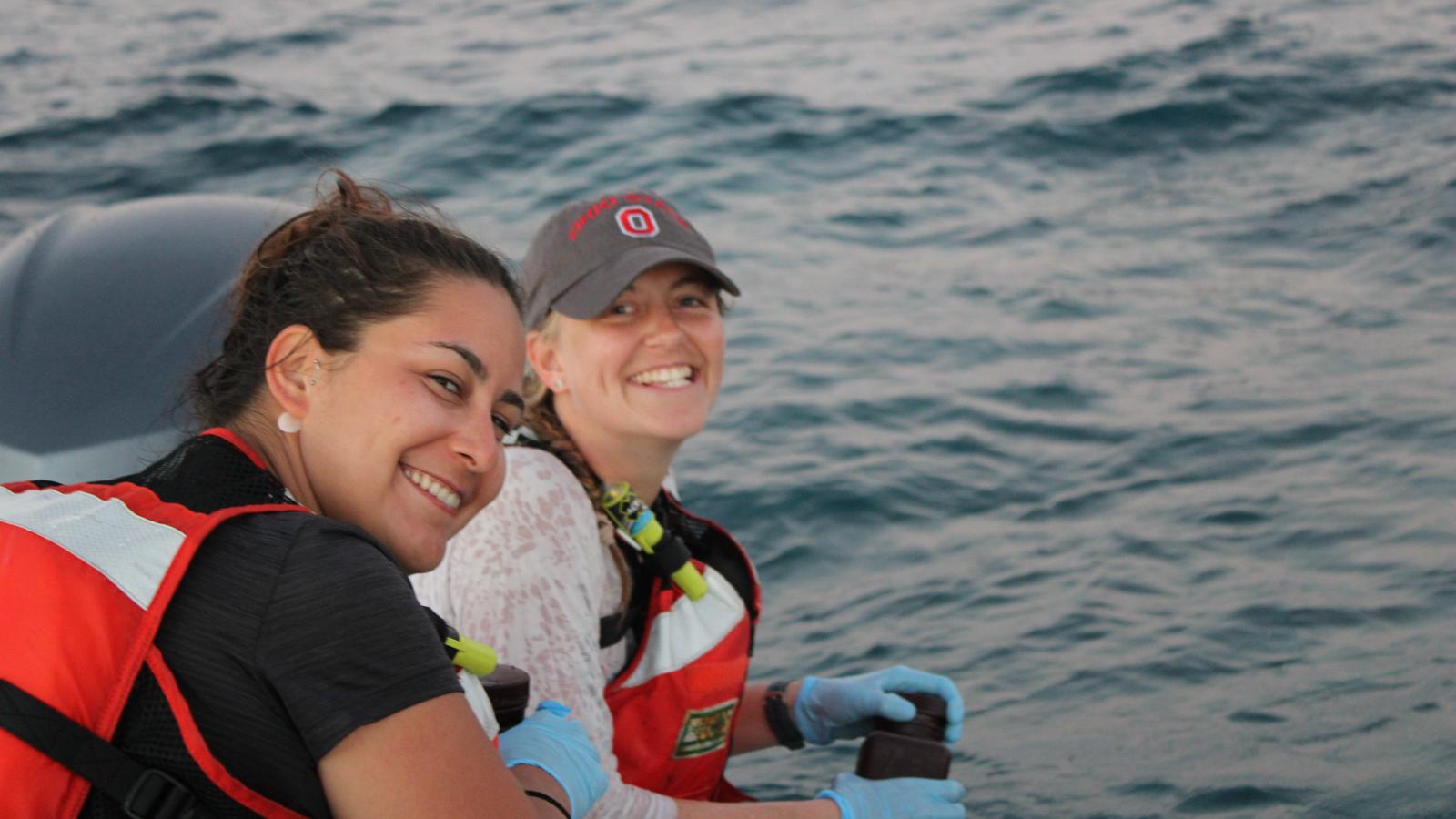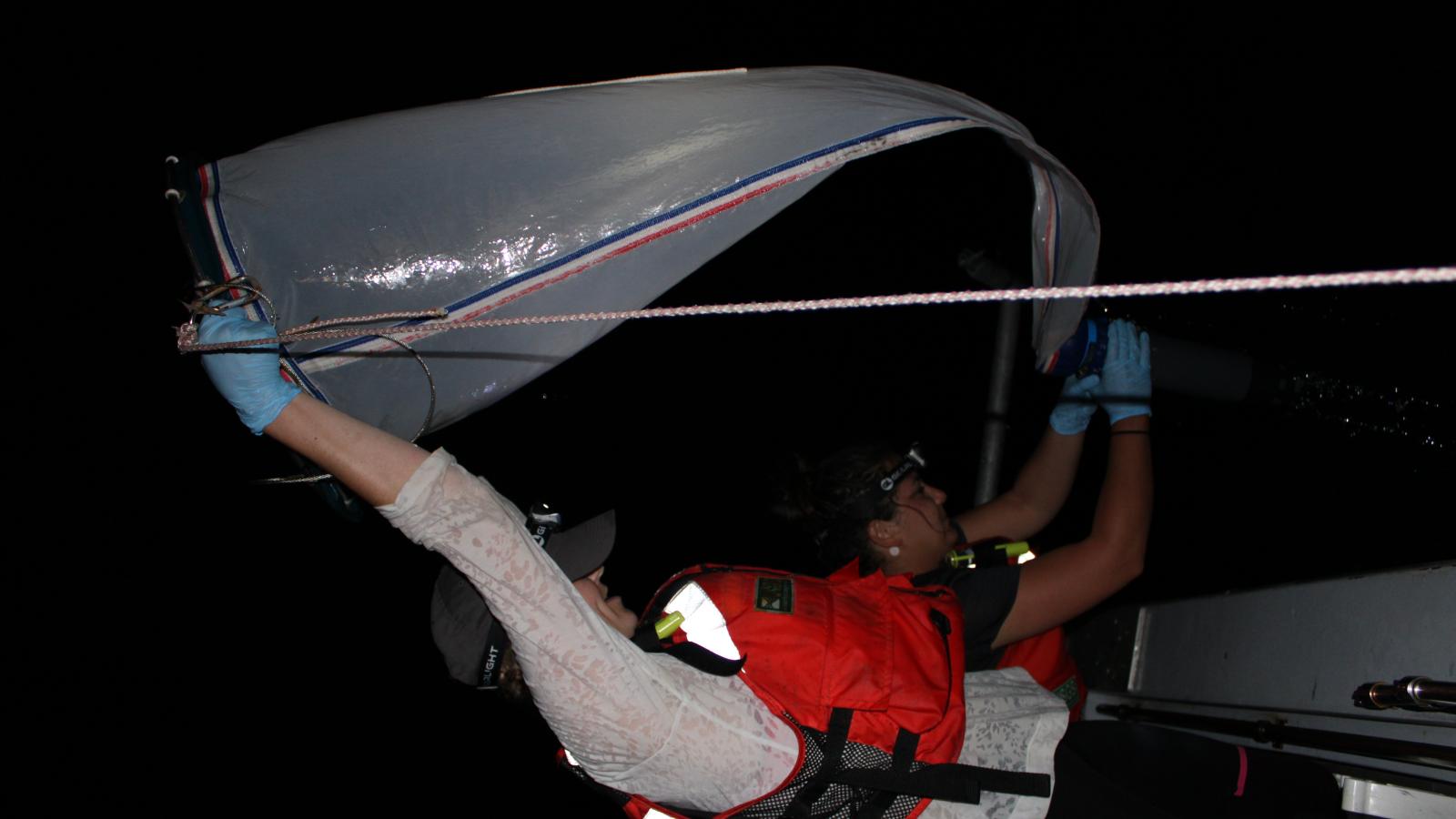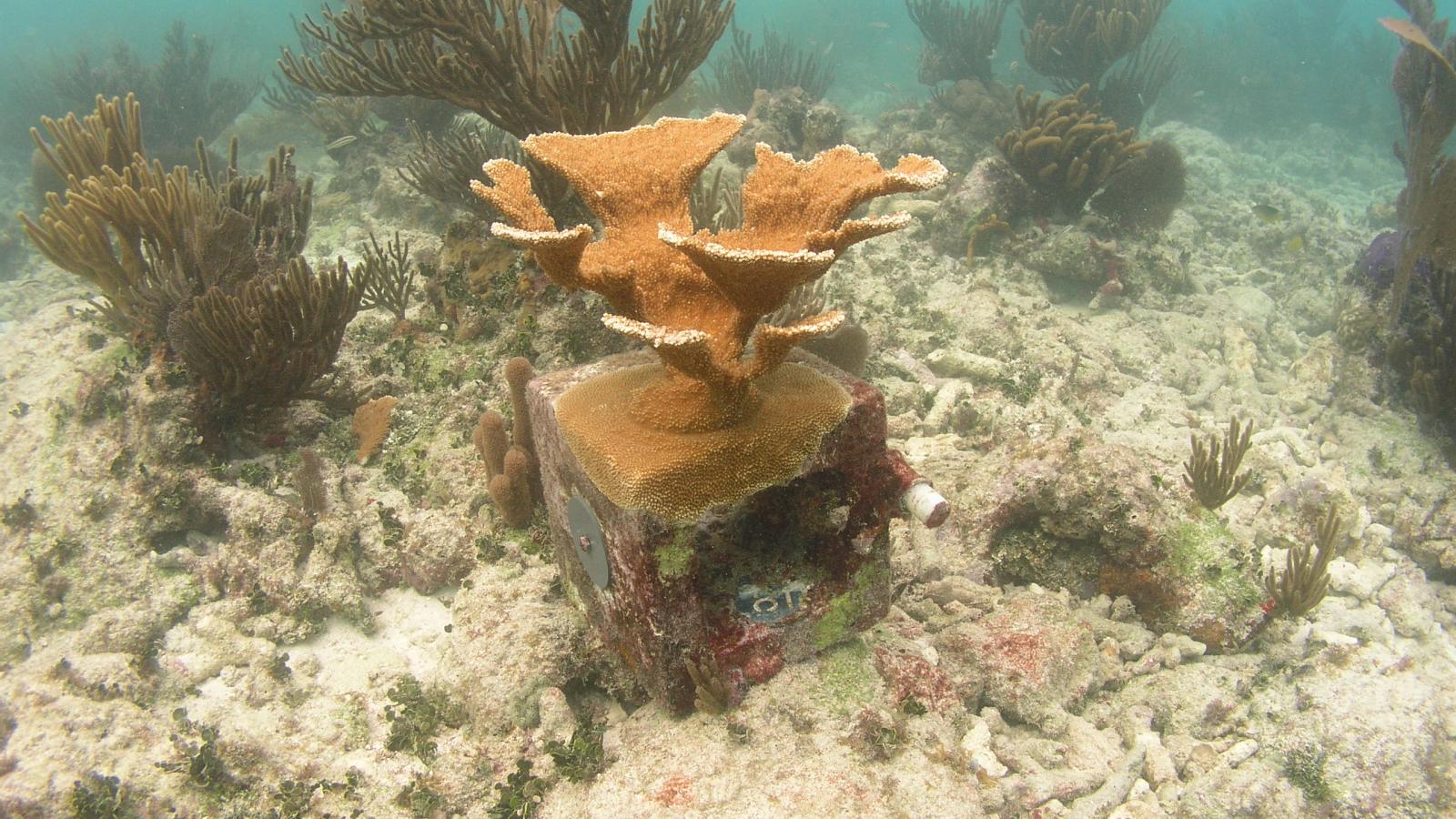Prof Grottoli Studies Elkhorn Corals in the Dry Tortugas
Professor Andrea Grottoli and her team conduct more fieldwork in the Dry Tortugas over Thanksgiving to study endangered Elkhorn corals
In October, Dr. Grottoli in the School of Earth Sciences at OSU along with her graduate student Ann Marie Hulver and her postdoc Dr. Leila Chapron drove to the Florida Keys (2,600 miles in a minivan loaded with gear) to join her collaborator Dr. Ilsa Kuffner and her team from the United States Geological Survey in St Petersburg, FL, for some fieldwork that had been delayed since April due to COVID travel restrictions. At the time, only half of the sites could be sampled due to bad weather.
Over Thanksgiving, favorable weather conditions permitted Dr. Grottoli and her team to return to Florida to complete the fieldwork (another 2,600 miles in a minivan loaded with gear). This time, they headed several hours west of Key West, FL by boat to the Dry Tortugas. Based on the ship the M/V Makai, the Grottoli and Kuffner teams battled less than ideal conditions to collect more coral, seawater, and coral samples. The good news is that the Elkhorn coral in the Dry Tortugas were healthy and thriving! Further laboratory analyses are now needed to try and determine why they grow so much better on these remote reefs and if the Dry Tortugas might be a suitable location to try and restore this species.
Elkhorn corals (Acropora palmata) once dominated the reefs of the Florida Keys and the Caribbean. Now they are near extinction in much of the region. Grottoli and Kuffner are collaborating on a project to determine why transplanted Elkhorn corals seem to be doing better in the Dry Tortugas than in any other part of the Florida Keys reef tract. Answers from this study could provide mechanisms for enhancing the restoration success of this vital coral species. One hypothesis has to do with variation in temperature and supply of zooplankton (a favorite food for corals).
The work was performed under an approved scientific permit with the Florida Keys National Marine Sanctuary.

